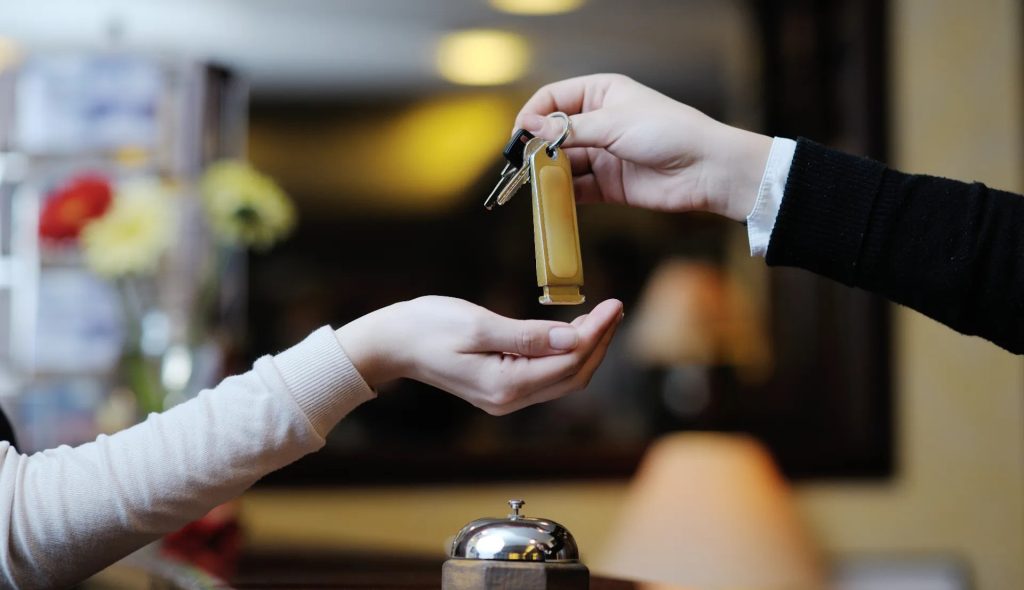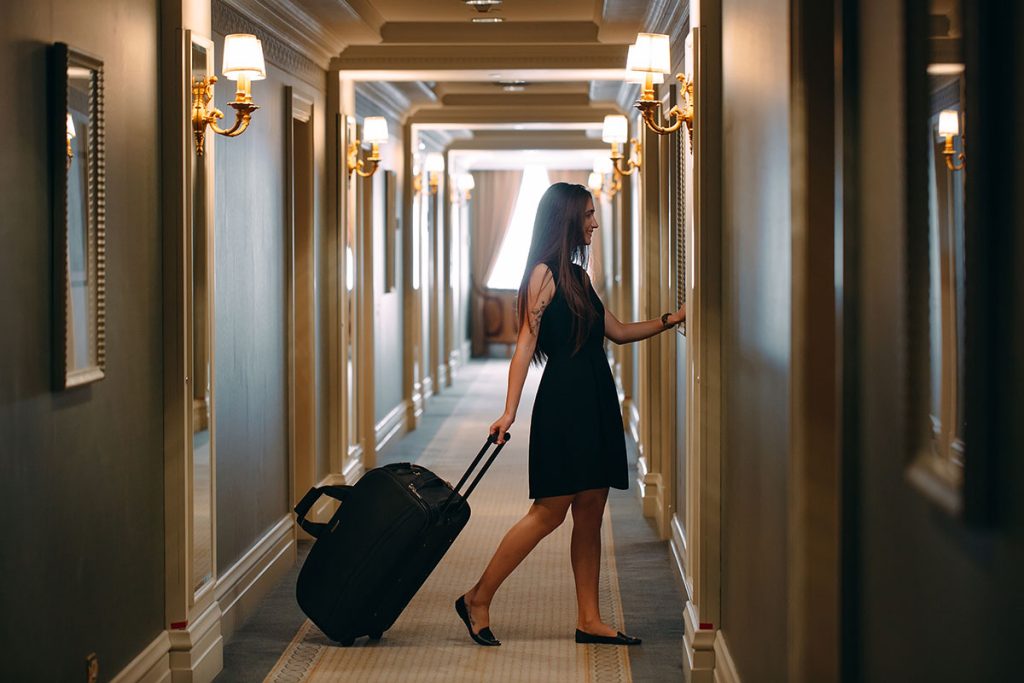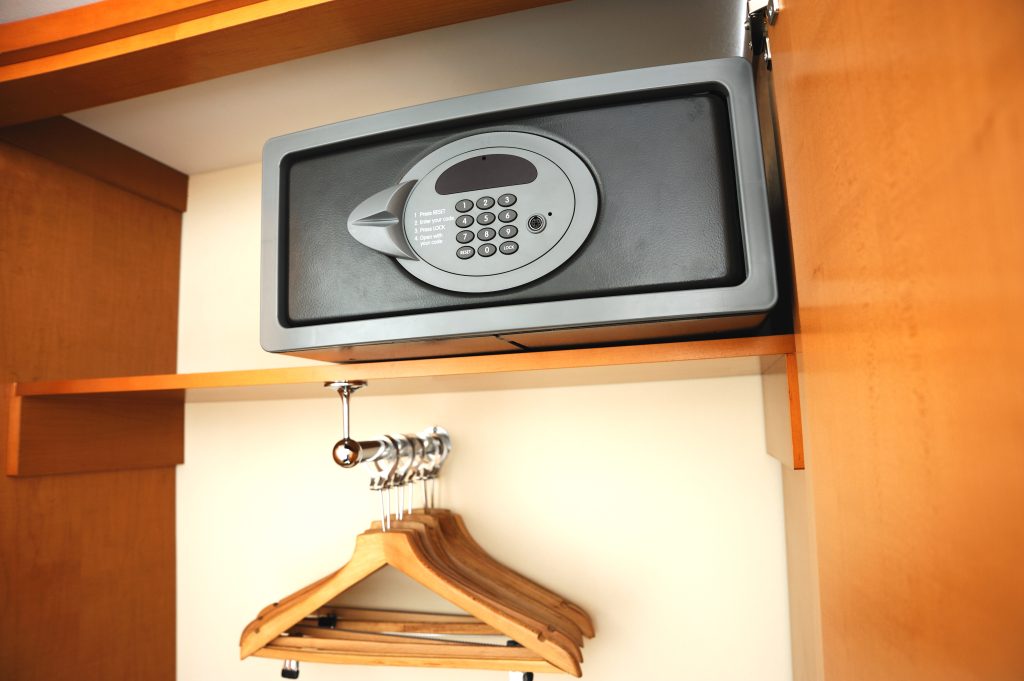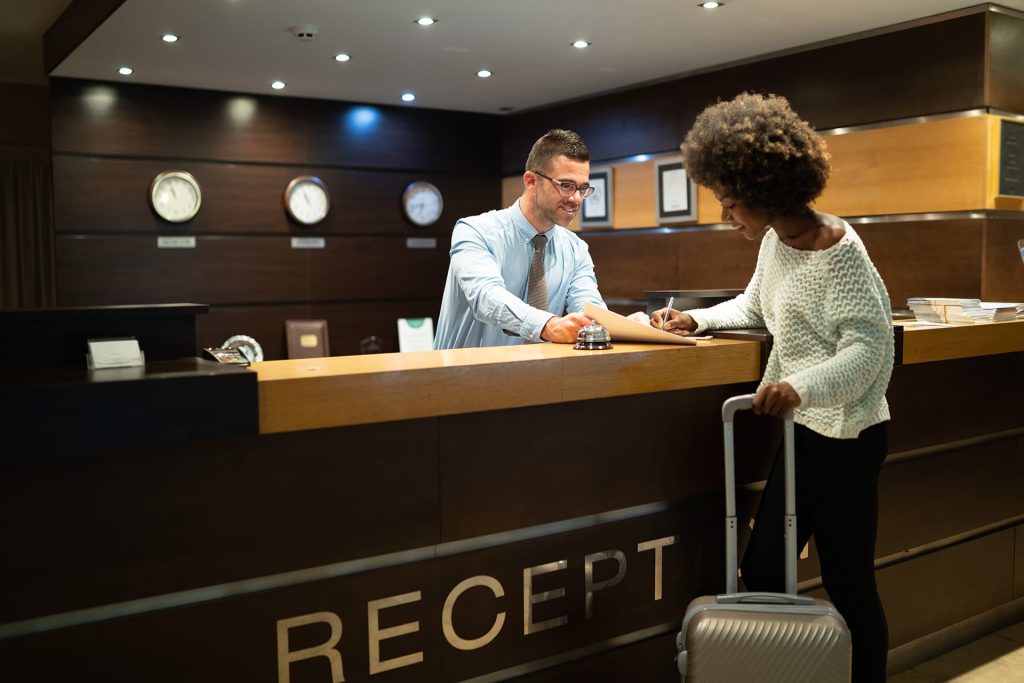Whether you’re a seasoned traveller or setting off on your first adventure, staying in a hotel can be one of the most enjoyable aspects of your trip. But to truly relax and enjoy your stay, it’s important to keep these essential hotel safety tips in mind. Knowing how to protect yourself and your belongings in an unfamiliar environment is key to a worry-free experience.
Why Does Hotel Safety Matter?

Staying in a hotel is often a highlight of travelling, but it also comes with its own set of challenges. Unfamiliar environments, new faces, and a constant flow of people can make even the most confident traveller feel a bit uneasy. Common concerns like securing your valuables, feeling safe in your room, and navigating emergency situations are all valid and should be addressed to ensure a secure hotel stay.
The good news? With a few simple precautions, you can rest easy knowing you’re well-prepared for a safe and enjoyable stay. Below, we’ve compiled the top hotel safety tips to help you stay secure from check-in to check-out.
1. Choose Your Hotel Wisely
Before you even book your stay, it’s important to do a bit of research. Opt for hotels in safe neighbourhoods with good reviews, especially regarding security. Look for hotels that have:
- 24-hour front desk service: This ensures that there’s always someone available to assist you in case of any issues, day or night.
- Secure access points: Choose hotels where entry to lifts, corridors, and rooms is restricted to guests only, typically through key card access. Additionally, consider hotels that employ door supervisors or security guards to monitor entrances and exits, adding an extra layer of protection.
- Good lighting: Ensure the hotel is well-lit, both inside and outside, particularly in car parks, corridors, and stairwells, as this deters criminal activity.

2. Check Your Room’s Security Features
Once you’ve checked in, take a moment to inspect your room’s security features. This initial check can significantly enhance your safety during your stay:
- Lock the Doors: Ensure that your room’s door has a functioning deadbolt, security chain, and peephole. These are your first line of defence against intruders.
- Check the Windows: Make sure all windows are secure, especially if your room is on a lower floor. If they can be opened from the outside, consider requesting a room on a higher floor.
- Know the Exits: Familiarise yourself with the emergency exits and fire escape routes. This is particularly important if a quick evacuation is necessary. Most hotels provide this information on the back of your room door.
3. Check for Hidden Cameras
In today’s digital age, privacy concerns have increased, including the potential for hidden cameras in hotel rooms. Although rare, it’s a good idea to take precautions:
- Scan the Room: Upon entering, do a quick scan of the room, paying close attention to common areas like the bathroom, near the bed, or the TV. Look for unusual devices or small holes that might conceal a camera.
- Use a Detection App: There are smartphone apps available that can help detect hidden cameras by scanning for wireless signals or infrared light. These can be useful if you want extra peace of mind.
- Cover Cameras on Devices: If you’re particularly concerned, cover the cameras on devices like your laptop or smart TV when not in use.
Ensuring your privacy is a critical part of hotel safety and helps guarantee a truly secure hotel stay. For more detailed instructions on how to protect your privacy, check out our guide on how to detect hidden cameras in your hotel room.
4. Keep Your Valuables Safe
Valuables such as passports, cash, and electronics can be tempting targets for thieves, so it’s important to store them securely:

- Use the Safe: Most hotels provide in-room safes—use them! Store your passport, extra cash, and other valuables inside. If the safe has a combination lock, choose a unique code that’s difficult to guess.
- Split Up Your Cash: Don’t keep all your money in one place. Keep some cash in your wallet and the rest in a secure spot, like the safe or a hidden compartment in your luggage.
- Consider Portable Safes: If you’re carrying particularly valuable items, you might want to invest in a portable travel safe. These can be attached to immovable objects in your room, providing an extra layer of security.
These tips are particularly useful for those staying in budget accommodations where in-room safes might not always be available.
5. Be Cautious with Your Information
Your personal information is just as valuable as your belongings. Here’s how to protect it:
- Don’t Share Your Room Number: If someone overhears your room number at the front desk, politely ask for a different room. Also, avoid displaying your room key or card where others can see it.
- Be Mindful of Wi-Fi: Avoid using public Wi-Fi networks for sensitive activities like banking or shopping online. If possible, use a Virtual Private Network (VPN) to encrypt your data and protect it from hackers.
- Secure Your Devices: Ensure that your electronic devices, like phones and laptops, are password-protected. If your devices have location tracking, enable it so you can locate them if they go missing.
These hotel safety tips are crucial, but if you’re staying in a different type of accommodation, such as an Airbnb, you’ll want to check out our Airbnb safety tips as well. Protecting your personal information is important no matter where you stay.
6. Stay Aware of Your Surroundings
Being vigilant and staying aware of your surroundings are key elements to staying safe in any situation. Make sure to follow these safety tips whether you’re inside or outside the hotel:
- Lock Up Before Leaving: Always lock your room, even if you’re just stepping out for a moment. It only takes a second for someone to slip inside.
- Stay Alert: Be aware of anyone acting suspiciously or loitering near your room. Trust your instincts—if something feels off, report it to hotel staff.
- Be Cautious in Public Areas: While hotel lobbies and restaurants are generally safe, they are also public spaces where anyone can enter. Keep an eye on your belongings, and avoid leaving them unattended.
7. Interact Safely with Hotel Staff
Hotel staff are there to help, but it’s still important to be cautious. Following these hotel safety advice can help you interact safely and confidently with hotel staff.
- Verify Staff Identity: If someone knocks on your door claiming to be hotel staff, verify their identity before opening the door. Call the front desk to confirm if you have any doubts.
- Limit In-Room Services: For extra safety, limit the number of people who enter your room. If you don’t need housekeeping services every day, use the “Do Not Disturb” sign to reduce the number of strangers entering your space.
8. Emergency Preparedness
While we hope you never have to deal with an emergency, it’s good to be prepared:
- Keep Emergency Contacts Handy: Have the local emergency numbers saved in your phone, along with the hotel’s front desk number. This will ensure you can quickly reach the right people if something goes wrong.
- Pack a Small Emergency Kit: Include basic first aid items, a torch, and a whistle in case of emergencies. This can be particularly useful if you find yourself in an unexpected situation like a power outage.
9. Be Smart with Hotel Transportation
If you’re using the hotel’s transportation services, keep these tips in mind:
- Verify the Driver: If you’ve booked a ride through the hotel, ensure the driver’s identity matches the details provided by the hotel. This is especially important if the hotel sends a private car service.
- Avoid Sharing Rides: While it may be tempting to share a ride to save costs, it’s safer to stick with transportation services arranged by the hotel or reputable companies.
10. Security During Check-Out

Yes, even check-out deserves a bit of attention:
- Review Your Bill: Make sure there are no unexpected charges, as mistakes can sometimes occur. If you notice anything suspicious, address it before you leave the hotel.
- Double-Check the Room: Before leaving, ensure you haven’t left any personal items behind, especially in the safe. Check all drawers, closets, and under the bed to ensure nothing is forgotten.
- Protect Your Luggage: If you’re storing your luggage at the hotel after check-out, ask if there is a secure storage room. Ensure your bags are tagged with your name and contact details.
A Safe Stay Equals a Happy Stay
A little attention to safety can go a long way in ensuring your hotel stay is secure and stress-free. By following these hotel safety tips, you’ll be able to focus on what really matters—enjoying your trip!
So, the next time you’re packing your bags, remember these hotel safety essentials. Whether you’re off on a weekend getaway, a longer holiday, or a business trip, a secure hotel stay will help you rest easy, knowing you’ve got everything covered.
Happy and safe travels!


